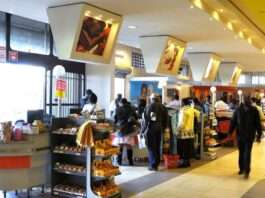THE relative macroeconomic stability that has prevailed since April 2024, when the country adopted Zimbabwe Gold (ZiG) as a new currency, has allowed consistent pricing and better planning for businesses.
In their recent financials, some companies listed on both the Zimbabwe Stock Exchange (ZSE) and the US dollar-denominated Victoria Falls Stock Exchange said stability has allowed for more investments and planning flexibility.
“The relative stability that has prevailed since September 2024 has improved business sentiment, allowed for more consistent pricing strategies and enabled better planning across the portfolio,” Innscor Africa chairperson Mr Addington Chinake said in a statement accompanying the company’s financials for the year ended June 30, 2025.
“The group is reassured by these developments that have been driven by the monetary authorities and remains hopeful that the existing stability will be sustained, as this is critical in fostering investment and long-term industry growth.”
Innscor Africa focuses on light manufacturing businesses.
In the period under review, the group reported a 19,4 percent jump in revenue to US$1,08 billion, surpassing the US$1 billion mark for the first time since the company restructured in 2015.
With a number of the major investments that have been underway over the past few years having been recently commissioned, Mr Chinake said, the focus will now be on achieving optimal capacity utilisation, unlocking production efficiencies and securing the requisite targeted financial returns.
In its economic outlook report, stockbroking and equities research firm FBC Securities said resilient sectors like tourism, construction and mining are leading economic recovery efforts.
ZSE-listed National Tyre Services (NTS) says it is optimistic that price and exchange rate stability will hold.
“The local currency has shown notable stability since its inception in April 2024, which has brought improved pricing clarity and predictability to our business operations,” said NTS chairperson Mr Rutenhuro Moyo in the financials for the year ending March 31, 2025.
“We anticipate increased tyre demand driven by the ongoing Government infrastructure projects, including road rehabilitation works, particularly in the commercial and transport sectors. The proposed measures to curb smuggling of goods, including tyres, will promote fair competition and support formal businesses.”
NTS is the largest distributor and retailer of new tyres and tubes for the car industry in Zimbabwe.
The company, Mr Moyo said, has already witnessed growing customer preferences in its newly launched tyre brands and anticipates improved performance in the second half of the financial year.
“We also hope for a stable power supply from Kariba to reduce operating costs. Improved rainfall forecasts and a recovering agriculture sector also point to stronger demand for agriculture tyres,” he said.
According to a recent Zimbabwe National Statistics Agency second-quarter business tendency survey for the manufacturing sector, the bulk of respondents remain optimistic about the general business climate.
The International Monetary Fund (IMF), in its latest Article IV consultation report, commended Zimbabwe’s economic progress, citing significant strides in stabilising the economy.
“After facing significant macroeconomic volatility in recent decades, Zimbabwe has recently experienced a degree of stability, thanks to tighter policies.
“The halting of quasi-fiscal operations and monetary financing by the central bank have helped significantly reduce inflation and exchange rate pressures,” the IMF
said.
It added that growth recovered as extreme weather shocks subsided and terms of trade significantly improved.
Economist Mr Walter Mapfumo said consistent and predictable policies are crucial for attracting investment and promoting economic growth.
“Investing in infrastructure, such as power generation and transportation, can help reduce costs and improve competitiveness for businesses,” he said.
He said encouraging diversification in the economy, including in sectors such as manufacturing and tourism, can also help reduce dependence on a few key industries.










